Recently, the 2024 Annual Meeting of the American Education Research Association (AERA) took place, with faculty members Prof. CHIANG Feng-Kuang, Dr. LIU Huacong, Dr. WANG Shuai, PhD candidate QIAN Jiali, and master’s candidates NI Li, ZHANG Huilin, and ZHOU Yun in attendance and presenting. The conference was held from April 11-14 in Philadelphia, Pennsylvania, USA, under the theme “Dismantling Racial Injustice and Constructing Educational Possibilities: A Call to Action”. AERA is a prestigious conference in the field of education, and the 2024 Annual Meeting attracted more than 14,000 participants from around the world.
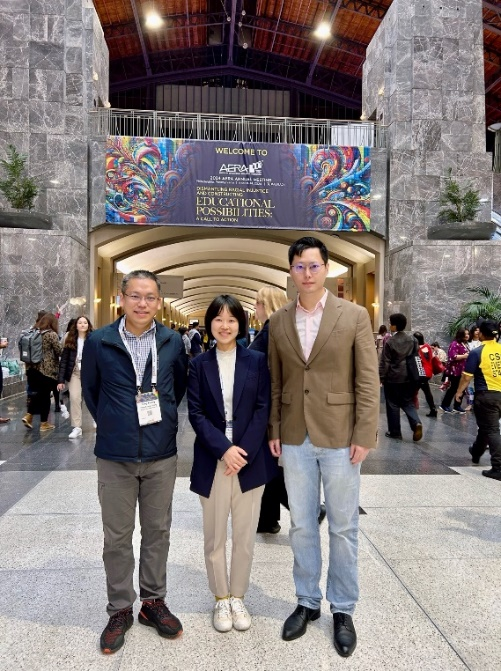
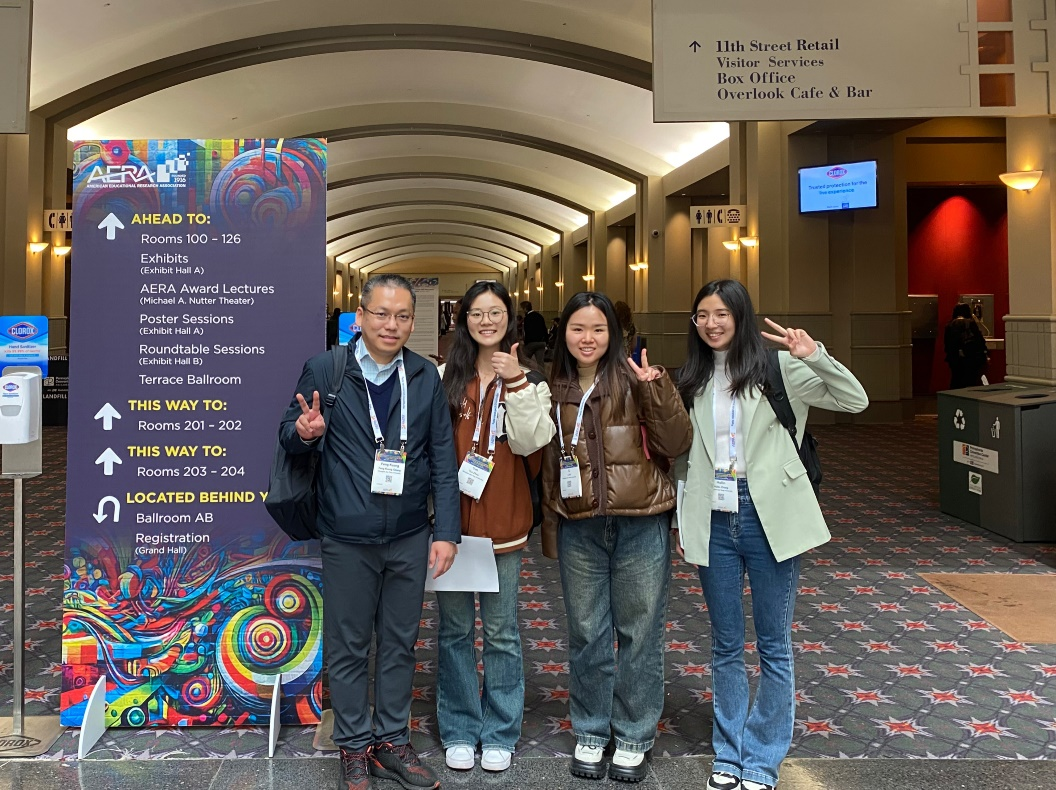
Associate Professor LIU Huacong participated in two roundtable sessions. The Thursday session, entitled “School Effectiveness and School Improvement”, gathered researchers from Chile, the U.K., Scotland, Israel and China.LIU presented a paper entitled “How Effective is School-to-School Collaboration in Shanghai”, which she collaborated on with Dr. WANG Maohua. The paper discussed the experiences of partnering low-performing schools with high-performing ones in Shanghai as a means to improve the quality of the former through changes in teachers’ teaching methods and principal leadership. She presented quantitative analytical models utilizing propensity score matching and difference-in-differences to evaluate the effects of such school-to-school collaboration. The analyses indicated strong improvements in students’ test scores in Chinese, Mathematics, English, and Science. Further mediation analyses suggested that increased principals’ instructional leadership significantly mediated students’ academic performance.
A second roundtable session entitled “Comparative Studies in Educational Leadership from Across the Globe” brought together researchers from the U.S., Germany, and China.LIU and co-author Professor Pendola from the U.S. presented a paper titled “A Rural Divide? Behaviors of Rural School Leaders in the United States and China”. In this study, they delineated the actions of rural middle school principals in both the rural U.S. and rural China using PISA 2015 data. The study found that: (1) principal actions differ more between countries than between rural and non-rural locales within countries; (2) individual leadership actions generally have little overall impact on achievement in rural schools cross-nationally; and (3) universally applicable "best practices" for rural principal leadership, as captured by the PISA principal leadership framework, do not exist.
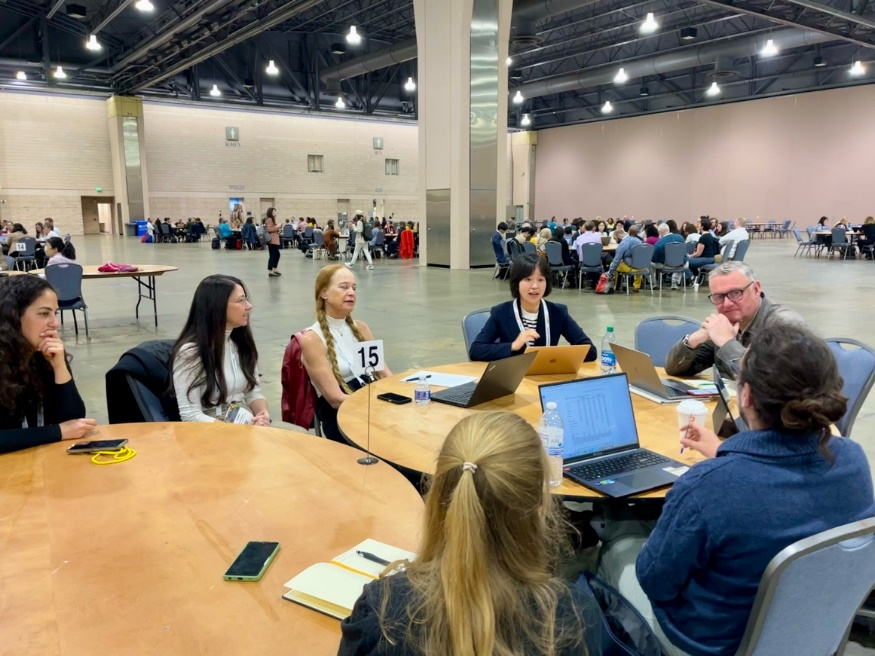
Associate Professor WANG Shuai gave a total of three research presentations at AERA.
The Friday session was themed “Enhancing Teacher Capacities Through Technological Innovation”. The conference brought together researchers from China, the United States, Germany, and other regions. ProfessorWANGreported on his research team's study on “Using the Technology Acceptance Model to Understand Chinese Students’ Attitudes Toward Adaptive Learning”. The study surveyed seventh and eighth-grade students in China regarding their attitudes towards using adaptive learning systems. Overall, the research findings supported the usefulness of the TAM model and applied this theory to Chinese high school students who used adaptive learning systems. Additionally, they discovered characteristics exhibited by the Chinese student population in this study - subjective norms predicted students' technology acceptance, indicating that while adaptive learning content is personalized, there are still social factors present in user experience.
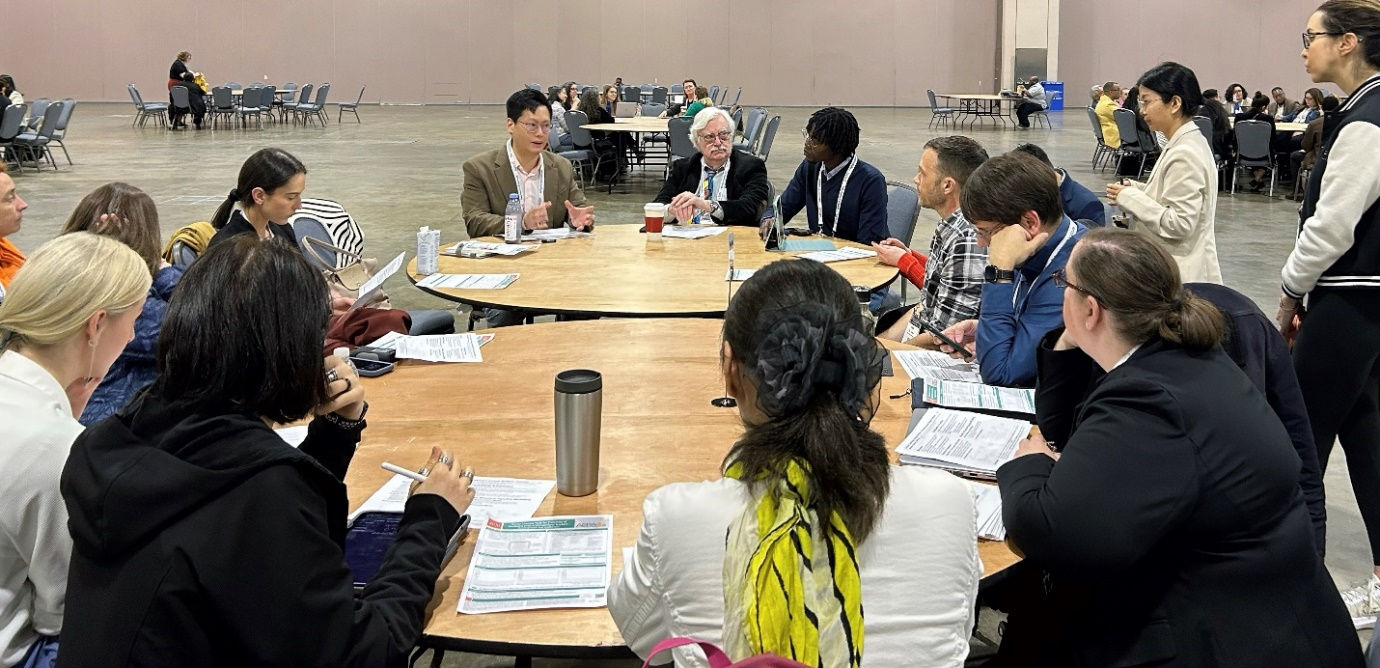
Additionally, Dr.WANG presented his team's research on “Satisfaction and Continuance Intention of an Online College Transition and Support Program for Disadvantaged Students” under the session theme of “Examining the Role of Support Programs in Student Postsecondary Success”. This study was based on the “Zhuli Camp” project at Shanghai Jiao Tong University. It introduced three factors (perceived enjoyment, trust, and willingness to recommend) to extend the Expectation-Confirmation Model and constructed a theoretical model based on students admitted under the preferential program to explore student satisfaction and willingness to continue participation. The research findings indicate that confirmation has a positive impact on perceived usefulness, trust, and enjoyment. Perceived usefulness and trust fully mediate the relationship between confirmation and satisfaction. Perceived usefulness and trust positively influence satisfaction, while enjoyment and trust positively influence willingness to continue participation. WANGalsoshared policy implications of this study for teachers and administrators.

Finally, WANG presented his team's research on “Identifying Learners’ Frequent Behavior Patterns in Successive Virtual Scientific Inquiry Tasks” under the session theme of “Contemporary Approaches to Science Education”. Previous studies have demonstrated the relationship between frequent behavioral patterns and performance in virtual science inquiry tasks. However, there has been limited attention to identifying common patterns and exploring various contexts, resulting in a lack of understanding of learners' activities in complex situations. To address these research gaps, their study focused on common and unique patterns in virtual science inquiry tasks. By analyzing 13,906 log events from learners, they found that learners with higher overall scores exhibited some more complex patterns. These findings contribute to a more comprehensive understanding of learners, promoting task design and targeted support by researchers.
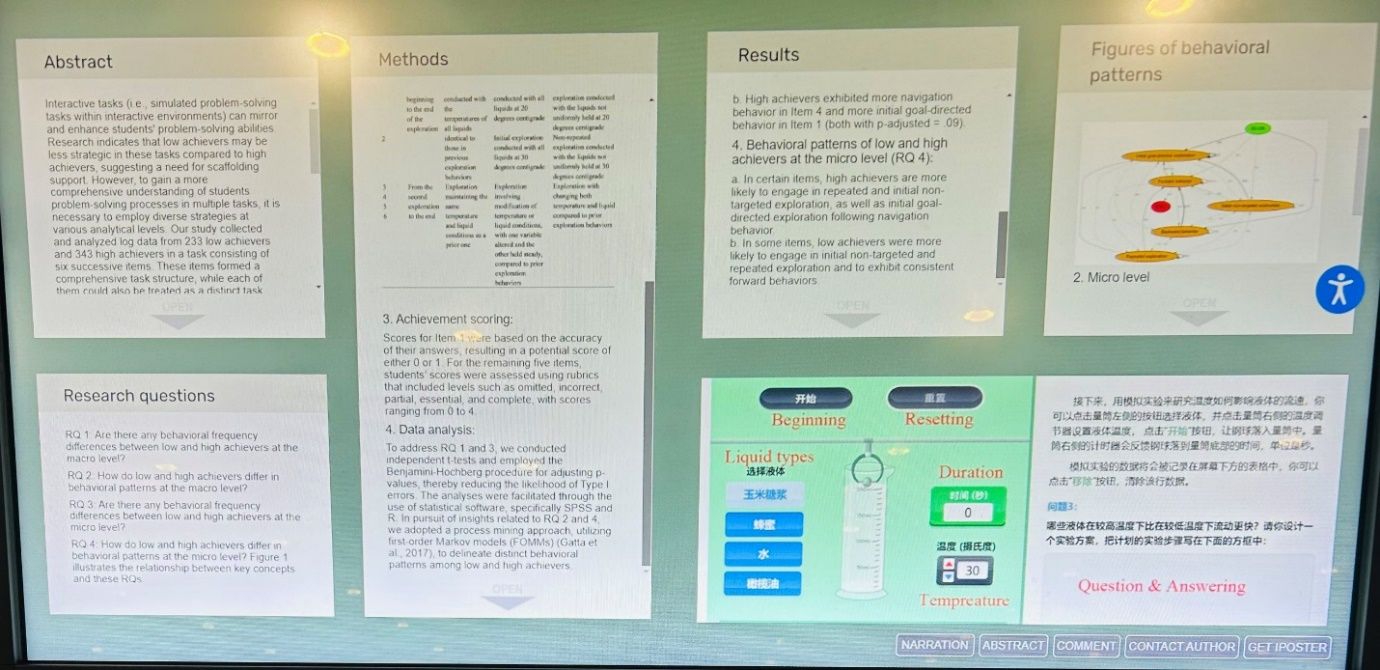
QIAN Jiali, a PhD candidate from SOE,participated in a roundtable conference organized by SIG-Research on Education and Sports titled “Balancing Act: Exploring the Interplay Between Sports, Academics, and Educators”. At the conference, she shared her research findings from the study “Physical Activity vs Academic Performance: Confrontation or Common Development?” The study utilized a parallel mixed-methods approach to explore the impact of the allocation of time and energy in physical activities on college students’ academic performance. From a quantitative perspective, the study analyzed the relationship between the duration of physical activity, energy expenditure, and students’ GPA through surveys. Qualitatively, it focused on 20 college students who regularly engage in physical activity, examining the specific impact of physical activities on their academic performance. The results indicated that appropriate physical activity not only does not undermine academic performance but actually enhances students' learning capabilities and efficiency. Properly scheduling time for physical activities helps improve time management skills and physical health, thereby boosting long-term academic efficiency. Additionally, physical activities strengthen students' self-confidence, foster the formation of learning community, and enhance cognitive abilities, all of which positively translate into better academic results.
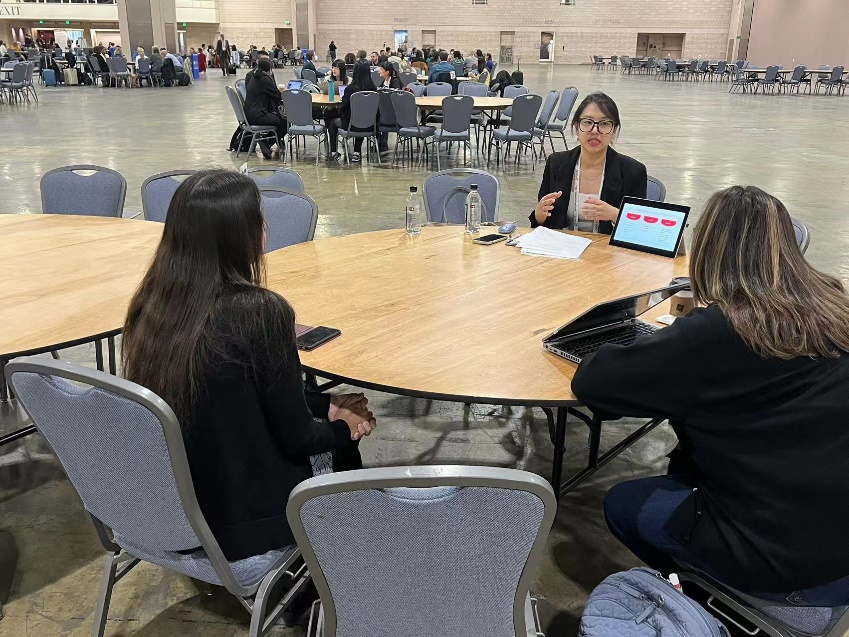
NI Li, a master student from SOE, gave an oral presentation named “The Manifestation of CreativeThinking in Chinese Mathematics Textbooks for Senior High Schools” in a Paper Session titled “Role of Curriculum & Instruction for Math Learning”. The study was conducted under the guidance of Dr. MA Yue. Creative thinking is considered as an important higher order thinking skill which plays an important role in mathematics learning. Many countries have proposed the cultivation of creative thinking in senior high school mathematics curriculum standards such as Australia, America, Singapore, Israel, and China. As the most basic and important teaching resources, textbooks are important in assisting teaching and learning. However, little is known about how creative thinking is manifested in mathematical textbooks and how to develop student mathematical creativity through tasks from textbooks, particularly for Asian countries where curriculum reform emphasizing fostering creativity is underway. Therefore, the purpose of the present study is to explore how mathematical creative thinking is manifested in the Chinese senior high school mathematics textbooks, and the results may provide insights into the kinds of learning opportunities that are available to students in China.
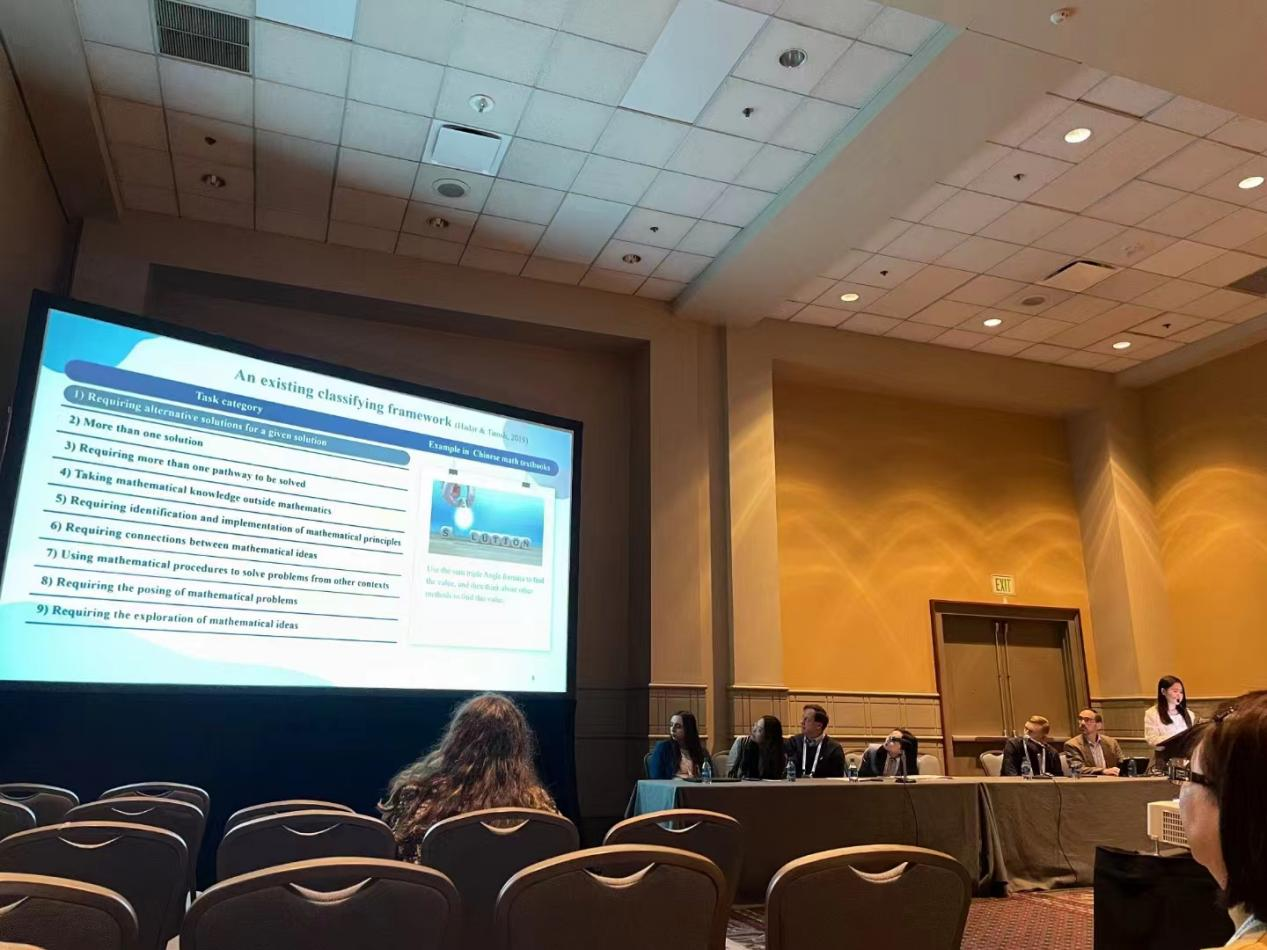
ZHANG Huilin, also a master student, participated in the sub-forum “Explorations in Student Motivation, Self-Efficacy, and Educational Outcomes”, and gave a presentation entitled The influence of the discrepancies between educational expectations and academic performance on subjective The well-being report. The study was conducted under the guidance of Dr. MA Yue. Discrepancies between students’ academic expectations and academic performance are increasingly common. However, few studies have explained the reasons behind it and the impact on students particularly for Eastern countries such as China. The purpose of this study was to explore the current status of the discrepancies between student educational expectation and academic performance, and further examine the predictors and outcomes associated with it. Results indicated that the individual factors, the family factor, and the teacher factor all contributed to the discrepancies. Moreover, the discrepancies are positively associated with students’ subjective well-being. Students’ beliefs in effort play a positive mediating role in the process. This study highlighted the importance of high expectations and might suggest directions for educators’ teaching practice.
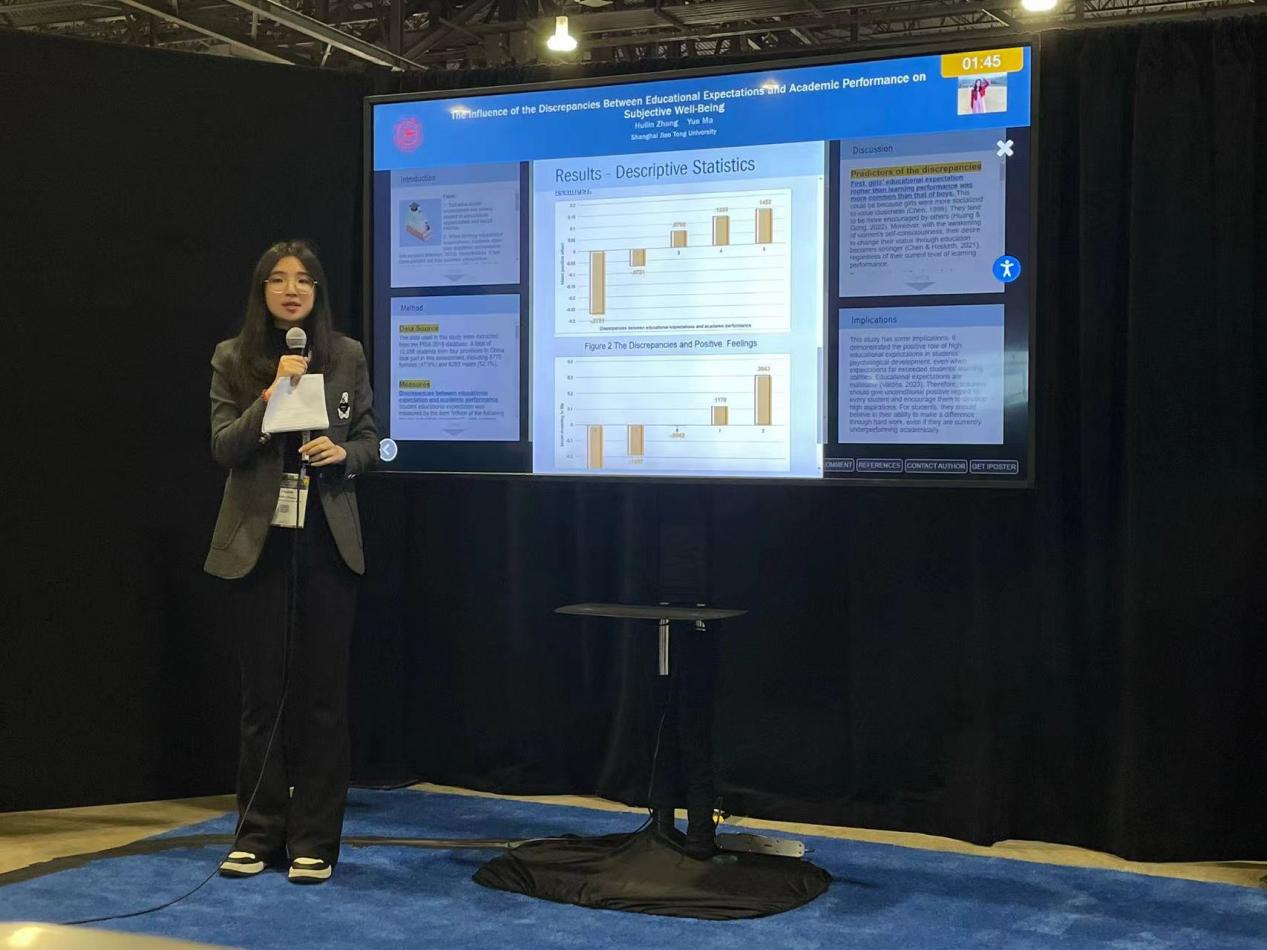
In the “Promoting equity and exploring inequity in education” poster session, ZHOU Yun, SOE master student, presented a paper entitled “Effects of Ethnic Diversity on College Students’ Academic Performance: A Natural Experiment”. The study was conducted under the guidance of Professor CHIANG Feng-Kuang and researcher LIU Ziming from Zhejiang University. This study examined the effects of ethnic diversity in dormitories on the academic performance of college students. Through a natural experiment, the study collected and performed regression analyses on the data on the grades of students (N = 20,417) from a university in East China. The result shows that Han students with minority roommates scored 0.397 points higher (P < 0.01) than did those without minority roommates. Moreover, the heterogeneity analysis revealed that the effects of ethnic diversity vary over time and by course type and student subgroup. These empirical results support the positive effects of ethnic integration on academic performance.
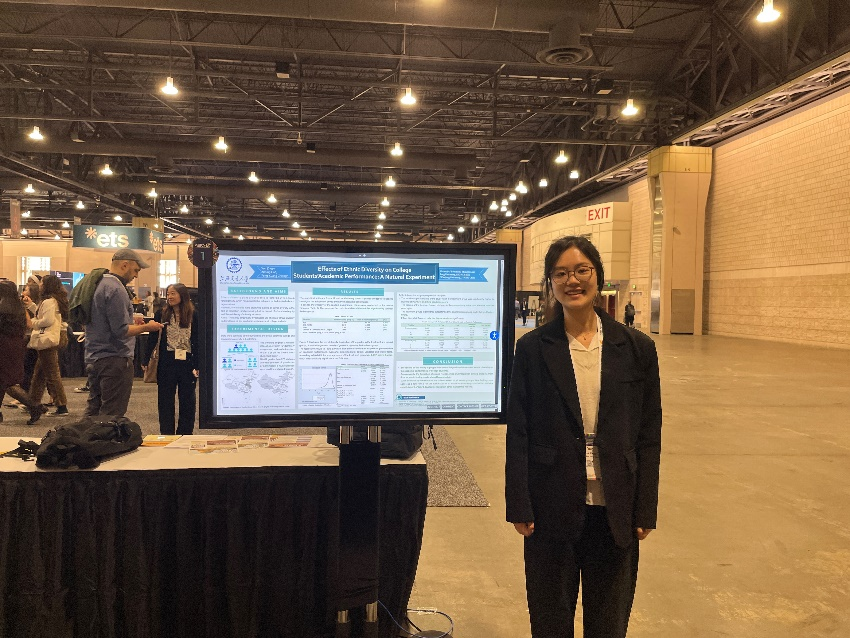
Professor CHIANG Feng-Kuang, also Vice Dean of SOE, engaged in in-depth exchanges and discussions with internationally renowned scholars during the conference to jointly explore future cooperation and development in the field of education. He not only participated in a number of cutting-edge discussions on the application and research of artificial intelligence in education, but also was invited to join the editorial board and reviewer’s meeting of Science Education (SSCI/Q1). Prof. CHIANG and scholars from all over the world discussed the innovative application of artificial intelligence in science education and the direction of future cooperation and exchange. During the meeting, he met with Dr. TONGFuhui, Dean of the Graduate School of Texas A&M University, and the two sides had in-depth exchanges on the future cooperation between the two universities in scientific research and education. In addition, CHIANG also engaged in a detailed conversation with Dr. Katherine Moore of the Teacher Education Program at the Massachusetts Institute of Technology on the cooperation between AI education and STEM teacher education. They concurred that reinforcing the integration of AI and STEM education is crucial for nurturing future teachers who possess an innovative spirit and practical skills, and they look forward to future joint projects.
Prof. CHIANG said that attending the AERA annual meeting and engaging in substantive exchanges with international scholars hold great significance for promoting international cooperation and the development of education in China. He hopes to further advance educational innovation and development through collaborations with more internationally renowned scholars and institutions and contribute to the cultivation of outstanding talents with a global perspective and innovative capabilities.
Written by CHIANG Feng-Kuang, LIU Hua Cong,
WANG Shuai, ZHOU Yun, QIAN Jiali,
NI Li and ZHANG Huilin
Proofread and Edied by CHEN Ruoxi